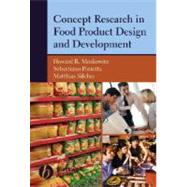
What is included with this book?
Sebastiano Porretta, Ph.D. is a senior researcher of the Italian Ministry of Industry at the Experimental Station for the Food Preservation Industry in Parma, Italy. He is well known for his research devoted to the study of the quality, and particularly the development of techniques, for a more accurate quality evaluation considering the relationships between the physico-chemical and sensory properties of food. He contributes to the Sensory and Consumer Evaluation of Food and Food Market with original approaches: the interactions between foods and the consumers. Great work was done to evaluate the effect of ingredients on food quality and consumer acceptability.
Currently, Porretta's Professor of Food Processing at the Catholic University of Piacenza, Professor of Sensory and Consumer Science at the University of Gastronomic Sciences of Pollenzo, and President of the Italian Association of Food Technology (AITA), since 1997. Additionally, Porretta is the Author/Editor of sixteen books and papers in scientific journals and a member of several boards of international peer reviewed journals.
Matthias Silcher, M.A. is assistant project director at Moskowitz Jacobs Inc. and has a background in empirical communication research, sociology and political science from the University of Berlin, Germany. His thesis, Survey by Short Messaging Service was the first academic paper on this subject. He has consulted for Kienbaum Consultants and advised as a political researcher for NFO Infratest.
| How the Book Was Born---Sebastiano's Tale | ix | ||||
| Preface | xi | ||||
|
3 | (16) | |||
|
19 | (56) | |||
|
21 | (16) | |||
|
37 | (16) | |||
|
53 | (22) | |||
|
75 | (84) | |||
|
77 | (28) | |||
|
105 | (18) | |||
|
123 | (20) | |||
|
143 | (16) | |||
|
|||||
|
159 | (122) | |||
|
161 | (14) | |||
|
175 | (12) | |||
|
187 | (10) | |||
|
197 | (14) | |||
|
211 | (18) | |||
|
229 | (18) | |||
|
247 | (34) | |||
|
281 | (126) | |||
|
283 | (40) | |||
|
|||||
|
323 | (20) | |||
|
343 | (26) | |||
|
|||||
|
369 | (38) | |||
|
|||||
|
407 | (106) | |||
|
409 | (22) | |||
|
|||||
|
|||||
|
431 | (16) | |||
|
|||||
|
447 | (24) | |||
|
|||||
|
471 | (26) | |||
|
497 | (16) | |||
|
|||||
|
513 | (64) | |||
|
515 | (22) | |||
|
|||||
|
537 | (24) | |||
|
561 | (16) | |||
| Index | 577 |
The New copy of this book will include any supplemental materials advertised. Please check the title of the book to determine if it should include any access cards, study guides, lab manuals, CDs, etc.
The Used, Rental and eBook copies of this book are not guaranteed to include any supplemental materials. Typically, only the book itself is included. This is true even if the title states it includes any access cards, study guides, lab manuals, CDs, etc.